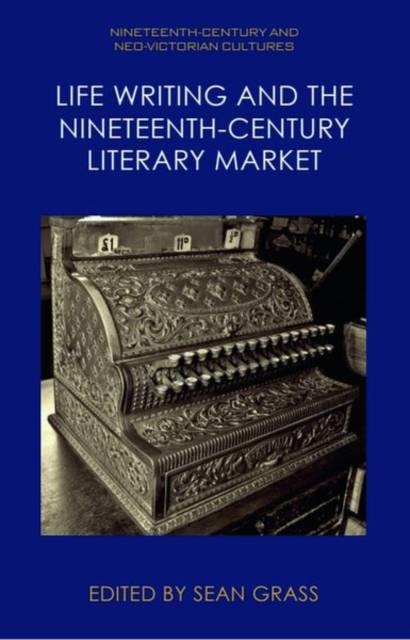
- Afhalen na 1 uur in een winkel met voorraad
- Gratis thuislevering in België vanaf € 30
- Ruim aanbod met 7 miljoen producten
- Afhalen na 1 uur in een winkel met voorraad
- Gratis thuislevering in België vanaf € 30
- Ruim aanbod met 7 miljoen producten
Zoeken
Life Writing and the Nineteenth-Century Literary Market
€ 209,45
+ 418 punten
Omschrijving
Life Writing and the Nineteenth-Century Literary Market begins from the premise that nineteenth-century life writing circulated in a market, in material and discursive forms determined substantially by the desires of publishers, readers, editors, printers, booksellers and the many other craftsmen and tradesmen who collaborated in transforming first-person narrative into a commodified thing. Studies of nineteenth-century life writing have typically focused on the major autobiographers, or on the formation of 'genre', or on the ways in which different class, gender, race and other affiliations shaped particular kinds of exemplary subjectivities. The aim of this collection, on the other hand, is to focus on life writing in terms to of profits and sales, contracts and copyright, printing and illustration--to treat life writing, through particular case studies and through attentive analysis of print and material cultures, as one commodity among many in the vast, complicated literary market of nineteenth-century England.
Specificaties
Betrokkenen
- Uitgeverij:
Inhoud
- Aantal bladzijden:
- 288
- Taal:
- Engels
- Reeks:
Eigenschappen
- Productcode (EAN):
- 9781399506816
- Verschijningsdatum:
- 30/11/2024
- Uitvoering:
- Hardcover
- Formaat:
- Genaaid
- Afmetingen:
- 156 mm x 234 mm
- Gewicht:
- 580 g

Alleen bij Standaard Boekhandel
+ 418 punten op je klantenkaart van Standaard Boekhandel
Beoordelingen
We publiceren alleen reviews die voldoen aan de voorwaarden voor reviews. Bekijk onze voorwaarden voor reviews.






